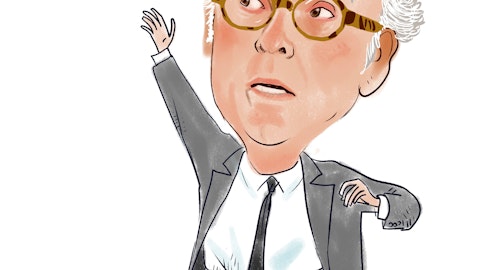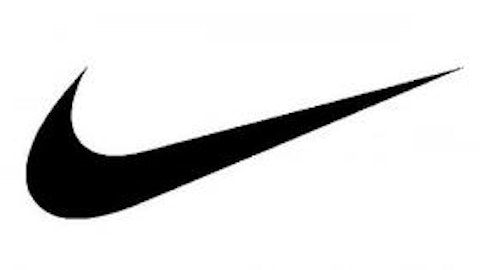Shoe companies Crocs, Inc. (NASDAQ:CROX) and Deckers Outdoor Corp (NASDAQ:DECK) are down over 20% this week. Both Crocs and Deckers operate in a niche shoe market, consisting primarily of outdoor-focused consumers. Crocs produces unique resin-based shoe wear that offers superior comfort, while Deckers is the maker of the popular UGG boot and Teva sandals.
However, top funds, including Tiger Global Management, Luxor Capital, Ken Griffin, Steven Cohen, Jim Simons and Standard Pacific Capital likely care less about the comfort or warmth of these shoes, and are more focused on why they aren’t selling. Deckers called Luxor Capital as its top fund owner with 2.9 million shares at the end of 2Q—a 400% increase from 1Q. Assuming Luxor owns the same number of shares now as the end of June, the firm has lost nearly $23 million this past week. For Crocs, Standard Pacific owned over 4 million shares of the company, and may have lost around $15.6 million. Now that these funds, and countless investors, have lost sizable amounts of money, the real question is why?
Crocs saw revenue up 8% last quarter, compared to the same quarter last year, and also saw net income up 49%. This allowed the company to beat EPS estimates of $0.43 by posting $0.49 per share totals. Crocs was able to continue its growth by breaking into Europe and Asia, but European uncertainty has put a damper on the company’s outlook. Even with the upcoming holiday shopping season, Crocs’ management is expected to post EPS of $0—or break-even—while consensus had been for the company to make $0.10 next quarter.
Deckers was down after cutting its full year outlook, citing rising inventories due to lower sales. The company’s price hikes might have something to do with this. Deckers managed to beat last quarter EPS estimates by 14%, but offered guidance that shows sales for 2012 increasing only 5% year over year. This is well below the company’s previous estimates, which forecasted a 14% sales growth. As well, full year EPS is now expected to be down 33% YOY, compared to the company’s previous expectation of a 9% decline.
The poor outlook given by Crocs and Deckers could also weigh on the other major shoemakers, including Steven Madden, Ltd. (NASDAQ:SHOO), Wolverine World Wide, Inc. (NYSE:WWW) and Nike, Inc. (NYSE:NKE). So far this year, Steven Madden has managed to not release any major misses on EPS announcements. The company is up 20% year to date and continues to reaffirm guidance. Analysts estimate that this year’s EPS should be up 20% from last year, and despite what other shoemakers have experienced in 2012 thus far, Steven Madden has seen positive growth from international markets. For the first half of 2012, Madden saw U.S. revenues up 47%, while its foreign segment was up 58% from the same period last year.
Wolverine posted 3Q results earlier this month that missed consensus EPS estimates of $0.73 a share. The company posted earnings of $0.72, compared to $0.82 for the same quarter last year. The company lowered guidance and is expected to post full year EPS down 18% from last year on the back of weaker than expected European sales and warmer weather. Wolverine’s fund interest was more robust than that of other shoe companies during 2Q. Top fund owner Ken Griffin upped his stake 1270%, and both Tiger Consumer Management and Select Equity Group took new positions. However, there were a couple insiders selling out between $43-$44 a share.
Last month, Nike posted EPS of $1.23, compared to $1.36 in the same quarter last year. Prior to that, S&P lowered its rating and outlook on the company, citing a global slowdown. The company is expected to see margin compression as it tries to grow internationally, which will require it to realign operations with new markets, including appealing to the growing Chinese market. Even given this, Nike is expected to grow next year’s EPS at 13%; however, longer-term prospects remain uncertain, as the company is expected to grow EPS over the next five years at an annual rate of 8%, well below the industry average.
Due to their recent selloff, Crocs and Deckers now trade below the average P/E of the peers mentioned above. Crocs trades at 9x and Deckers at 8x, compared to the industry average of 19x. Deckers’ introduction of men’s and kid’s products will allow the company to expand its addressable market. Although the company has primarily been on different ends of the shoe spectrum, with boots on one end and sandals on the other, it is looking to grow with offerings in the action sports market—see our previous thoughts on buying Deckers before winter.
Even with the cheapness of Deckers’ stock we still remain cautious given the company has a lot riding on this winter season. Comparatively, Crocs looks mildly attractive, and despite slowing international growth, the company has a solid foothold on its niche market and can rebound nicely. It might be wise to consider the large pull back as a potential buying opportunity.






